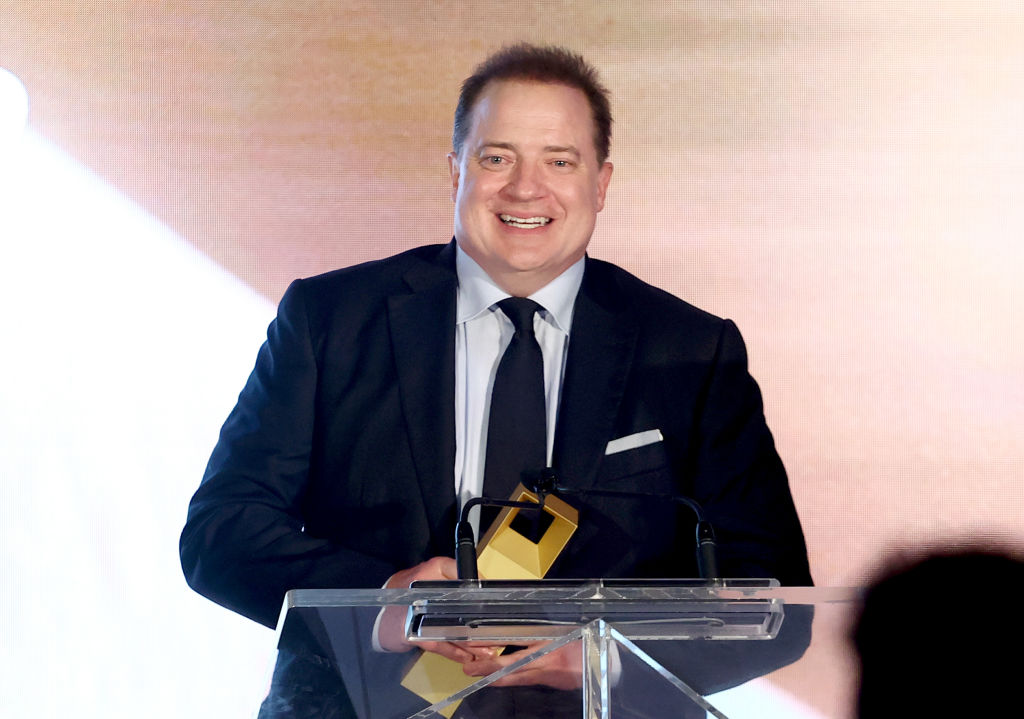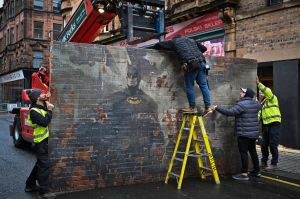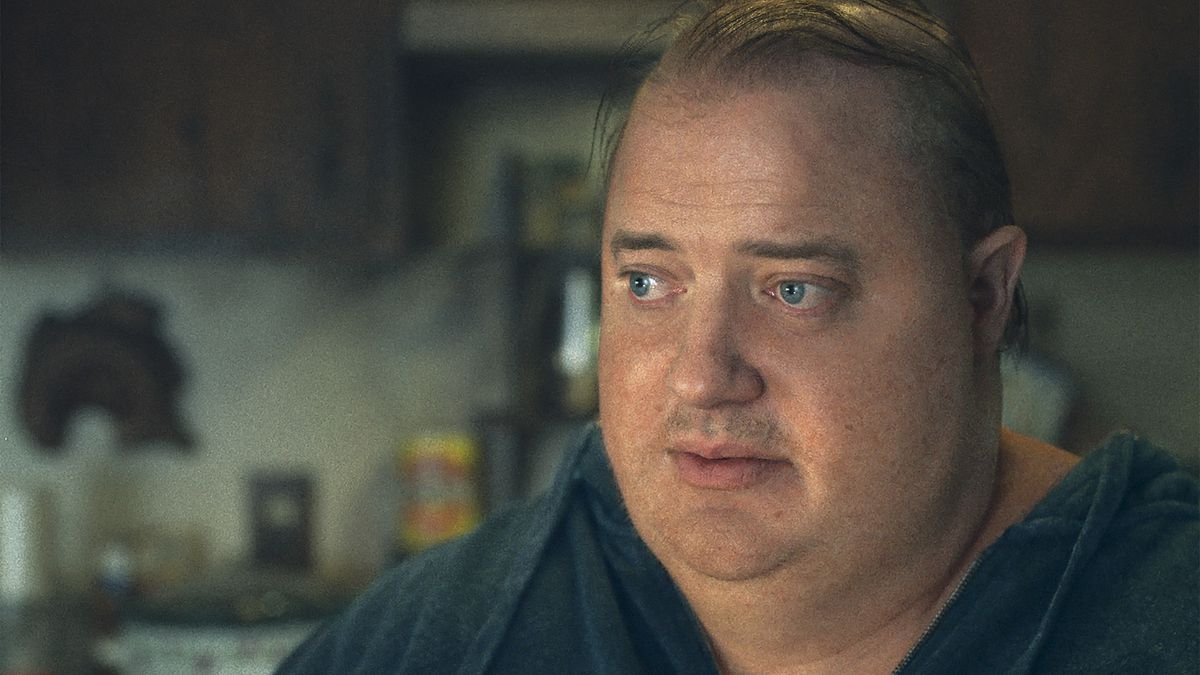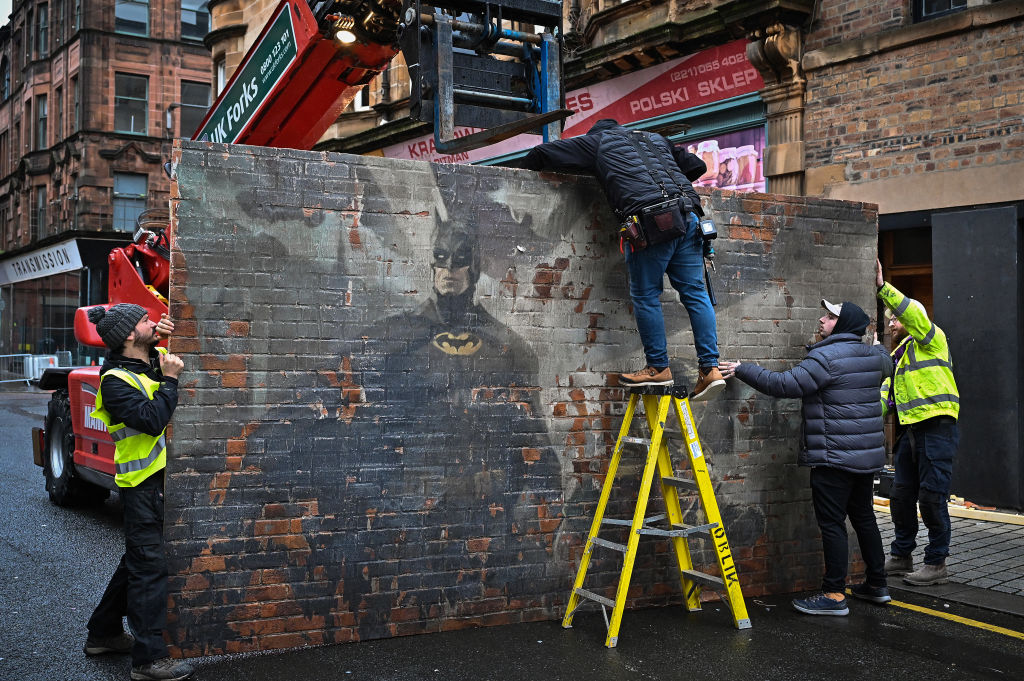At this year’s Venice Film Festival, it was widely agreed that the best male performance was given by none other than Brendan Fraser in the new Darren Aronofsky film, The Whale. Based on a play by Samuel D. Hunter — who also wrote the screenplay — it has nothing to do with Moby-Dick or any other watery protagonist. The title instead refers to Fraser’s character Charlie, a 600-pound middle-aged man who is determinedly eating himself to death, even as his family and friends attempt to break through the walls of pain that he has meticulously constructed for himself.
The film itself has received mixed reviews, with some critics praising it and others describing it as manipulative and cheap. But there has been no dissent about the excellence of Fraser’s portrayal of a lost, unhappy figure who is first introduced miserably masturbating over gay porn. At Venice, there was a six-minute standing ovation, ostensibly for the film but really for Fraser, who was shown looking emotional and teary. He will certainly be nominated for an Oscar; he may very well win it.
All this represents one of the more remarkable turnarounds in Hollywood history. A few years ago, Fraser was believed to be washed up and unemployable, a forgotten figure who had once been a star.
Of course, in his heyday, Fraser was considered one of the go-to younger actors for heroic leads with a sense of humor. From his breakthrough in 1997’s George of the Jungle to his best-known role as Rick O’Connell, protagonist of the Mummy trilogy, Fraser was a new kind of action star: muscly and brawny, but gentler and less macho than the likes of Tom Cruise and Bruce Willis. His performances in the eclectic likes of Gods and Monsters, The Quiet American and even the now-decried Crash showed him to be an actor of depth and nuance who could move between blockbusters and artistically respectable films with ease.
And then something went awry. After the dreadful third Mummy film in 2008, Fraser stopped taking on action roles. It got hard for him to find interesting parts in anything else either. By 2014, he had all but disappeared from view. He reappeared in a menacingly small role in the third season of The Affair, as well as a larger part in Danny Boyle’s Getty kidnap saga Trust. But it wasn’t until he returned with a part in Steven Soderbergh’s crime drama No Sudden Move that he was taken seriously again as a film actor, which was then compounded by his triumphant comeback in The Whale. His next major appearance will be in Martin Scorsese’s eagerly anticipated Killers of the Flower Moon, opposite Robert de Niro and Leonardo DiCaprio.
But what, exactly, derailed his career? Some would shrug and say it was bad luck, that Fraser had an undeserved reputation for being a beefcake who couldn’t act especially well. It’s more likely that Fraser found himself blacklisted after an incident with Philip Berk, the former president of the Hollywood Foreign Press Awards, the society responsible for the Golden Globes.
In a 2018 GQ interview entitled, fittingly, “Whatever Happened to Brendan Fraser,” the actor alleged that he was sexually assaulted by Berk: “His left hand reaches around, grabs my ass cheek, and one of his fingers touches me in the taint. And he starts moving it around.” Berk denied the accusations, sneering, “His career declined through no fault of ours.” Fraser sank into a deep depression after the incident, which Berk accepts took place, but describes what happened as a piece of horseplay, saying that any sexual allegation was “a total fabrication.”
We may never know the complete truth (although Berk’s expulsion from the HFPA in 2021 over a racist email suggests his card had been marked for some time). But Fraser undoubtedly brought these feelings of inadequacy and rejection to his performance in The Whale. It’s hard not to think that this fine actor, finally back in the spotlight, must have an overwhelming sense of vindication. It is the perfect Hollywood ending — and let’s hope Fraser now has many golden decades ahead of him.




















